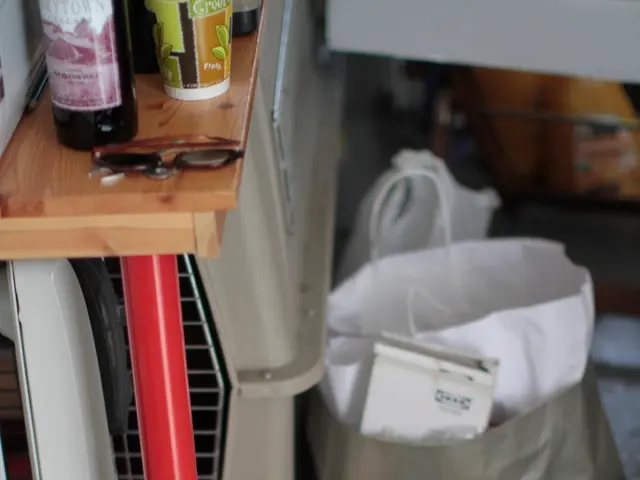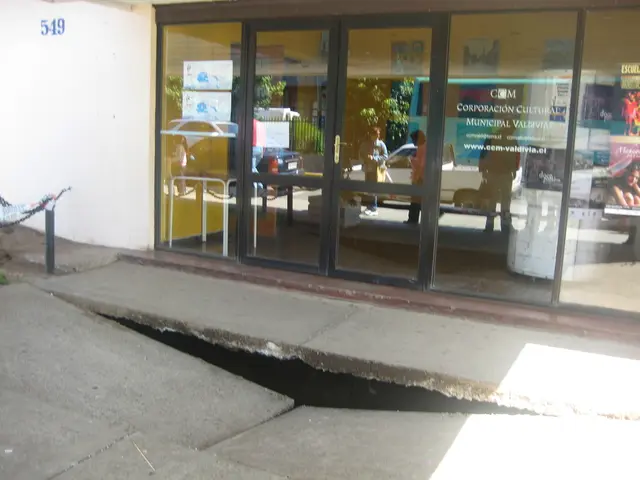Blast from the Past: Did Spahn Pull Strings During the Mask Scramble?
Is Spahn's transportability affected by the purchase of premium masks?
Jens Spahn's name is back in the headlines, and it's not for a good reason. The former Health Minister is once again under fire for his handling of mask purchases during the early stages of the COVID-19 pandemic. What started as a report penned by Margarethe Sudhof, an SPD member and former civil servant, has now become a heated debate about political ambition and questionable decision-making.
While Spahn maintains that his motives were to safeguard public health rather than boost his career, some critics argue that his actions favoring logistics company Fiege, based in his neighboring constituency, could represent a self-serving move. The report suggests that Fiege was awarded the contract despite stiff competition from DHL and Deutsche Bahn's subsidiary Schenker — companies that were initially identified by the Interior Ministry as more suitable for the job.
The chaos surrounding the mask procurement process has been well-documented. The Federal Court of Auditors had already criticized the lack of organization, with communications largely taking place through WhatsApp and emails from Spahn's personal account rather than those of the Ministry being archived[3].
Spahn defends his actions, citing the desperate situation at the time and the need to take financial risks to protect public health. His book, published in 2022, offers deeper insights into his thinking. In it, he notes that the established procurement offices were unable to meet demand, prompting him to take matters into his own hands at the Federal Ministry of Health[3].
Economics Spahn's Reckless Spending Accused by Green Bundestag Member
Paula Piechotta, a Green Bundestag member, has been a vocal critic of Spahn's handling of mask procurement. She believes that Spahn aimed to portray himself as a big shot but ultimately fell short, leading to substantial legal troubles[3].
The reported mishandling of the mask procurement process has raised questions about both Spahn's competence and integrity. As the full facts surrounding the matter have yet to be revealed, it remains to be seen whether Spahn will continue to be a prominent figure in German politics.
- Jens Spahn
- Corona crisis
- Mask mandate
- Protective masks
- CDU
- Karl Lauterbach
- Nina Warken
- Sudhof report
- Paula Piechotta
- SPD
Enrichment Data:
The mask report in question was commissioned by Karl Lauterbach, the former German Minister of Health, who requested an investigation into mask procurement practices during the COVID-19 pandemic. The report was not published during Lauterbach's tenure, but he has expressed a willingness to release it now[4].
The report, according to media leaks, suggests that Jens Spahn favored the logistics company Fiege for mask distribution without following a competitive bidding process. This decision was reportedly made during a critical phase of the pandemic when there was a severe shortage of masks[4][5]. The controversy surrounding Spahn's procurement practices has been highlighted by the Green and Left parties, which are calling for the full disclosure of the Sudhof report to clarify these allegations[4]. The report's findings have reignited scrutiny of the government's handling of mask procurement during the pandemic, particularly given the significant financial implications and the challenges faced by suppliers[5].
In the midst of ongoing debates, politics and personal ambition have been brought into question regarding Jens Spahn's role during the mask shortage in the COVID-19 pandemic. As the former Health Minister, Spahn's favoritism towards logistics company Fiege, despite stiffer competition, as suggested in the Sudhof report, has sparked controversy, particularly in relation to science, health-and-wellness, and general-news. Moreover, the economics aspect of Spahn's handling of the situation has been accused by Green Bundestag member Paula Piechotta, raising further concerns about his competence and integrity.








